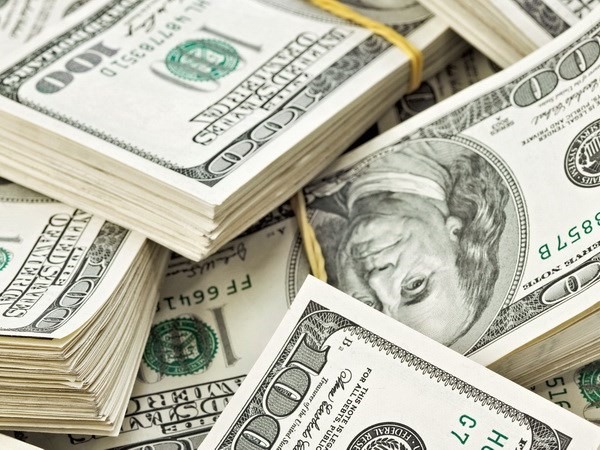Despite the high devaluation of the Vietnamese dong against the US dollar after Tet (Lunar New Year) holidays, experts believe the exchange rate will remain stable this year.

Despite the high devaluation of the Vietnamese dong against the US dollar after Tet (Lunar New Year) holidays, experts believe the exchange rate will remain stable this year.
They attribute it to stable macroeconomic factors.
The dong devalued by some VND50 against the dollar in the past week, staying at VND22,790-22,800 for selling and VND22,700-22,725 for buying at commercial banks.
On Wednesday, Vietcombank listed the dollar at VND22,725 and VND22,795 for buying and selling, respectively, up by VND10 against Wednesday.
The same rise of VND10 was also seen at Agribank, which quoted the dollar at VND22,715 and VND22,790 for buying and selling, respectively.
At BIDV, the US dollar was traded at VND22,720 for buying and VND22,790 for selling, an increase of VND5 in both compared to Wednesday.
The green back was bought at VND22,713 and sold at VND22,793 at Vietinbank, both up by VND11 against Wednesday.
After increasing the daily reference exchange rate by VND10 on Wednesday, State Bank of Viet Nam on Wednesday set the rate unchanged at VND22,473 per US dollar. With the current trading band of +/- three per cent, the ceiling rate applied to commercial banks during the day was VND23,127 per US dollar and the floor rate was VND22,700 per US dollar.
Meanwhile, the US dollar has reached a two-week peak in the global market after the first congressional hearing of Federal Reserve Chairman Jerome Powell.
Powell said he had approved a gradual normalisation of the monetary policy, adding that some of the headwinds the US economy had faced in previous years turned into tailwinds and the economy had strengthened recently.
A recent rise in inflation in the United States urged the US Federal Reserve (Fed) to raise rates more than three times this year, which is predicted to exert pressure on the dong.
However, Le Dang Khoa from HSBC Vietnam told Vietnam Television that he was not concerned about the fluctuation of the exchange rate in the domestic market in the past week, saying it was seasonal and was seen many times in previous years. Local demands for the dollar often rise sharply at this time to meet rising payment, he explained.
Besides, he said, after making significant profits in Viet Nam’s securities market this year, foreign investors sold their shares for the dollar, leading to a high demand for the currency at this moment.
He, however said the local exchange market would remain stable, thanks to the country’s US$1 billion surplus in the first two months of the year, besides significant amounts of foreign direct investment, official development assistance and foreign indirect investment.
Commercial banks are also optimistic about the foreign exchange market in 2018, noting the market would be stable with the dong devaluing slightly by some 0.5-1 percentage points to VND22,710-VND22,950.
According to a recent report from the capital and monetary research division of Bank for Investment and Development of Vietnam, the country’s overall balance of payment can maintain a healthy surplus of some $8-10 billion this year, which is important for the stability of the foreign exchange market.
Experts, however, have said policymakers still need to take flexible measures to control inflation in the coming time as a rise in the exchange rate can have some specific effects on the indicator.
Although inflation in Viet Nam is predicted to stay at four per cent in 2018, this figure can be influenced by unpredictable fluctuations in the domestic and global market, they said.
Deputy Governor of the State Bank of Viet Nam Nguyen Thi Hong recently also affirmed that the central bank would closely watch the forex market to take timely and suitable measures to stabilise the market. — VNS





